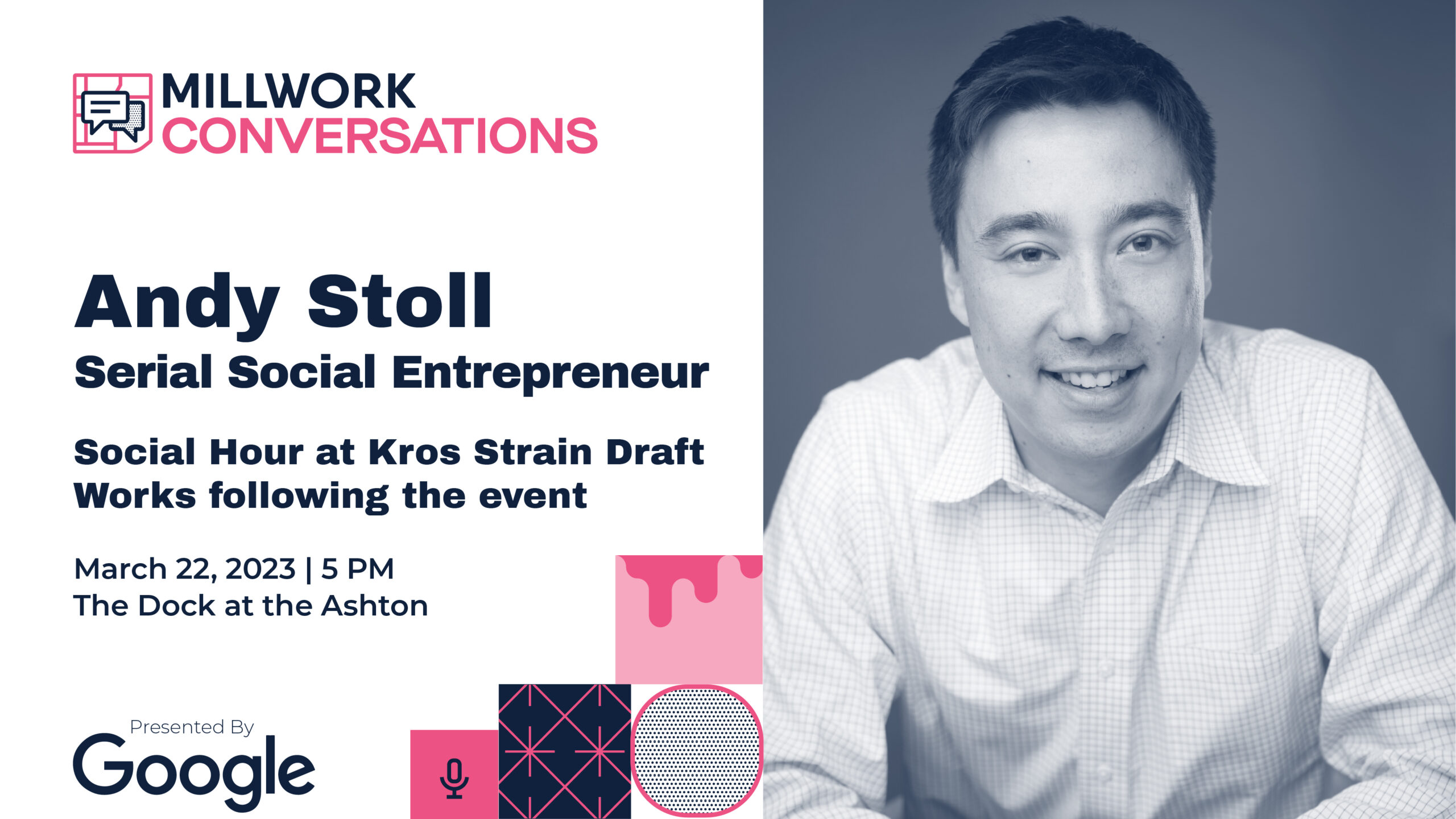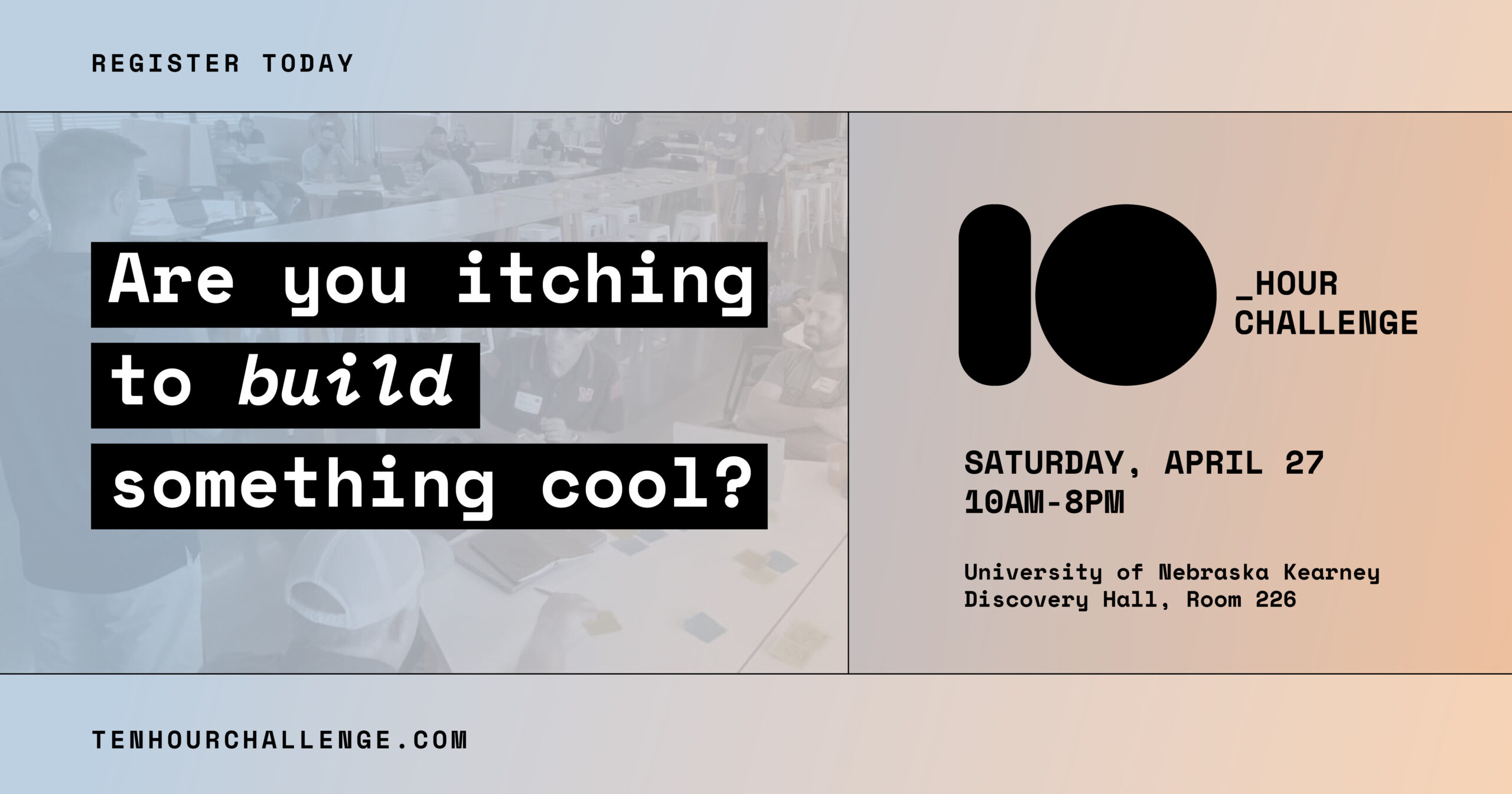How do we intentionally build communities that foster entrepreneurship, innovation and creativity?
That was the question posed by Andy Stoll, a serial social entrepreneur, producer and speaker, at the March installment of Millwork Conversations in Millwork Commons. Stoll has spent his career building pioneering programs, communities, classes and events to help entrepreneurs and creatives turn their ideas into reality.
Stoll grew up in Omaha, graduated from the University of Iowa, and spent four years on a solo around-the-world trip visiting 40 countries before moving back to the United States in 2010. He recently returned to Omaha, where he said he’s seen the entrepreneurial community make big strides over the last 10 years.
Stoll currently serves as the Senior Program Officer in Entrepreneurship at the Ewing Marion Kauffman Foundation. He manages the Foundation’s ecosystem development strategy.
Building communities to foster innovation
“Everything Omaha needs to create a deeper, bigger, wider culture of entrepreneurship, innovation and creativity is here,” Stoll said. “It’s just not organized very well.”
Stoll contends that breaking down (figurative) silos is the answer. He used the University of Nebraska at Lincoln as an example. The university houses at least dozens of offices that support entrepreneurship there.
But he said, “the people in the College of Law don’t know what the people in the College of Ag are doing. And the students in the College of Education don’t know what’s happening in the business school.”
“How do you organize a system of people and networks of people when no one’s actually in charge?” he asked.
Whose job is it to lead
The answer is it’s nobody’s job, so that makes it all of our jobs, he explained.
“What is the actual role of everyone in this room to lead? I think the short answer is find the thing you care about and start connecting with other people who care about it… and be mindful enough to realize what they’re already a part of.”
We don’t need to have all the answers, Stoll said. Instead, we must foster a culture where everyone is included and encouraged to work together.
A culture that creates space “to dream big, try, fail, get up again,” Stoll said. “This is how communities build their futures and build their economies. And how we create places that are vibrant and lift up the well being of all people.”
We need more spaces and places that foster connection between the people with the resources, networks and capital, and the creatives who are trying new things. He called out the Ashton at Millwork Commons as an example.
One way Omaha can “up its entrepreneurship / innovation / creative game” is creating additional spaces to try to bring those groups of people together, he said.
Defining a shared narrative
Another way to improve the culture of innovation and creative community here is “to watch the stories that are coming out of your mouth,” Stoll said.
“What I mean by that is the statement: ‘There’s nothing innovative / creative happening’, or ‘it’s less’, or ‘there’s nothing going on’, or ‘we’re not as good as Nashville’,” he said.
“That’s a story. That’s a story each of us made up, but if you repeat the story, the story grows and conversations go in the direction of what you feel.”
Stoll urged everyone to recognize that the collective story we tell is made up of “all the individual stories that we own.” We’re all contributing to the larger story each time we tell someone what Omaha, or Nebraska, is like.
“And it’s not that there isn’t a narrative,” Stoll said. “I just think that narrative is kind of all over the place.” It depends on who you talk to. We need to work on developing a shared narrative about what is possible in the creative and entrepreneurial community.”
Stoll said, “you’re not stuck in a traffic jam. You are the traffic jam, right?”
“You’re not stuck in a traffic jam. You are the traffic jam. Meaning it’s easy to complain about ‘them’ and ‘they’ and ‘those people’… But recognizing that we all play a part in the system we’re a part of. And we all have choices about, what I just said, literally the words that you say. And by modeling, by creating, the future you want to see in your life and your experience in your places.”
That, he thinks, is how we can intentionally build communities that foster entrepreneurship, innovation and creativity throughout Nebraska.




